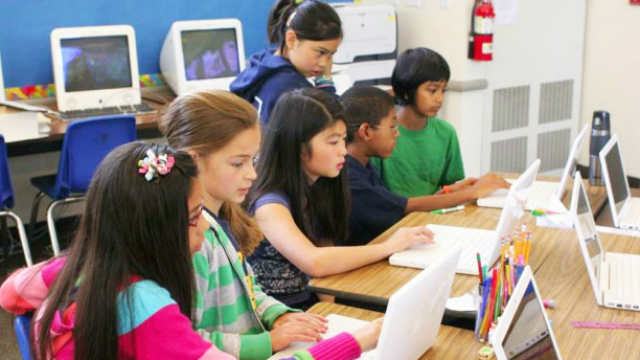
If your local school system offers computer science courses, chances are those courses are electives that won't count toward core science or mathematics credit. The implicit message is that, while those skills may prove important for some students' futures, they aren't as transferable to a wide range of occupations as, say, Algebra 2 or Biology.
But students like Sam Blazes and Wilfried Hounyo, two winners in the 2012 National STEM Video Game Challenge, say they see their passion for computer programming is potentially leading them into a wide range of future professions.
“There's no specific place you can plan on going because there are so many different things you can do with programming," Blazes told an audience during a panel discussion at The Atlantic magazine's Technologies in Education Forum earlier this month. “You can do pretty much anything with it that you can program.”
That's because computer programming is a study of languages more than of technology or mechanics. And command of those languages allows programmers to control the functionality of anything that is driven by a computer.
For example, Blazes and Hounyo, both now high school students in the Washington, D.C. area, each won acclaim for helping to design educational video games. But they both said they initially embraced programming through school robotics clubs, where students not only build robots, but work to write code that can control robots' movements and reactions. And as Blazes pointed out, the same skills could also be used for a wide range of career purposes, such as constructing meteorological simulations, making financial predictions, or creating personalized online learning curricula.

